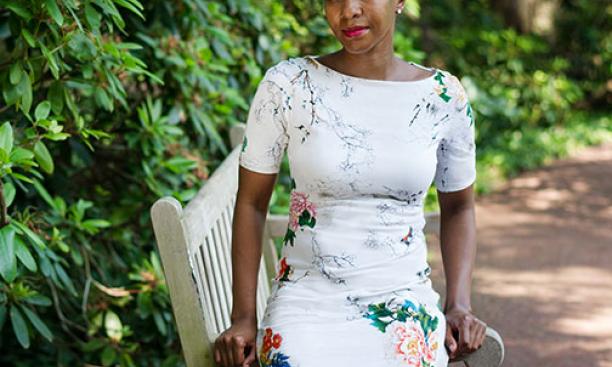

Somebody’s watching you. It may not be Big Brother, or even the National Security Agency, but count on it: Somebody’s watching you. And if you are African-American, you may be watched by shopkeepers, government officials, and, above all, the police.
Racial surveillance is one of the most prevalent forms of inequality in what Professor Imani Perry asserts is a new phase of racism in the United States today. In her most recent book, More Beautiful and More Terrible: The Embrace and Transcendence of Racial Inequality in the United States, Perry says that racism is less intentional than in past decades, but just as insidious.
Barneys department store is being investigated for racial profiling of African-American shoppers. Law-enforcement policies such as “stop and frisk” — which allows police officers to pat down and search someone on the street based on suspicion of unlawful activity — are far more likely to target African-Americans. And those receiving state aid or living in subsidized housing often are subjected to surveillance in the form of random home inspections and searches, Perry points out: “Public benefits mean that ‘we’ are made responsible for the care of ‘them’ and therefore have the right to monitor ‘them.’”
The gap between the constitutionally guaranteed right to privacy and the heightened surveillance to which African-Americans are subjected in their everyday lives has historical precedents, Perry notes, such as slave masters’ usurpation of privacy in the 19th century and the FBI spying on African-American political groups in the 1960s.
“There’s a long history of race and policing being deeply connected,” says Perry, a professor at Princeton’s Center for African American Studies since 2009. “And there’s this perception [among some groups] that black people are lawless.”
Surveillance may lead to higher rates of arrest for African-Americans. “If you are more likely to be watched and investigated,” writes Perry, “you are also more likely to be caught and to pay the price for social breaches.” Indeed, this may help explain incarceration rates in the United States: Black men are about six times more likely to be imprisoned than white men.
Run-ins with the police can have more serious consequences for African-Americans because, according to recent research, black children often are perceived to be older than they are and as a result are more likely to be treated harshly, Perry says. This is a personal concern for Perry, who has two sons. “When I think about my son who’s 10, who’s really still a child, I know I have to talk to him about monitoring his reactions,” she says. “Ten-year-olds can get pissed off, too.”
Perry points out that middle-class African-Americans are protected from the worst effects of inequality: “What I can do in terms of protection for my sons is far more than the average black mother can.”
